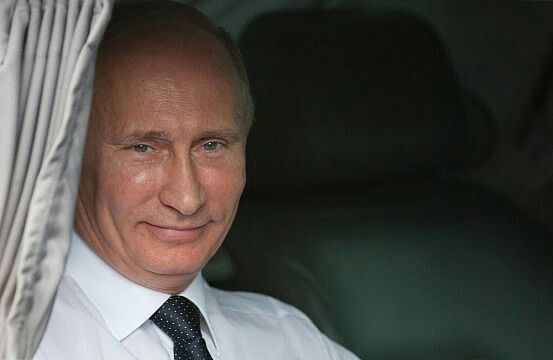Each week we bring you the ten most important pieces of news from Eastern Europe.
Compiled by: Hristo Voynov and Kristijan Fidanovski
- American foreign policy regarding Ukraine and Russia is anyone’s guess
With the US internally divided, it is having trouble finding a coherent policy pertaining to Eastern Europe and the Balkans. While a large part of the country is skeptical about the claims that Trump was to some extent aided by Russia, the majority accepts it as fact, leading to renewed sanctions against Russia, voted in by the vast majority of US Senators, 97-2. The senate deemed Trump’s connection to Putin worth putting extra measures so Trump himself cannot remove the sanctions. The House of Congress, however, blocked the bill over a technicality. Ukraine’s Poroshenko is meeting with Trump, and he made sure to note that his visit is scheduled before any such meeting with Putin. Along with the ongoing Trump-Putin debacle, Trump’s former campaign manager Paul Manaford worked with Poroshenko’s predecessor Yanukovich who was removed from power in the same movement that brought Poroshenko into office. To make matters worse, Ukrainian government officials (including their ambassador to the US) were openly supportive of his opponent during the 2016 election, something Trump is unlikely to forget. This is certainly going to be something Poroshenko keeps in mind during the meeting, even though he will be working hard to build up his relationship with Trump.
- Putin to visit Bulgaria in 2018
Russia’s president Putin has accepted Bulgaria’s pro-Russian president Rumen Radev’s invitation to visit Bulgaria sometime in 2018 to commemorate the 140th anniversary of the Russo-Turkish War. This announcement follows Putin’s statement last month that the Cyrillic alphabet came from Macedonia which caused massive outrage in Bulgaria, where the Cyrillic alphabet is regarded as an exclusively Bulgarian legacy.
- Czech government infighting leads to surprise resignation
Czech Prime Minister Bohuslav Sobotka resigned as the Social Democrat leader after a period of crisis which saw Sobotka against the President, Miloš Zeman, and his political ally the former Finance Minister Andrej Babiš, who is also a Czech media mogul and leader of the ANO political party. ANO is seen as a strong contender in the upcoming elections, and Babiš claimed that Sobotka resigned in order to save face for his party’s upcoming loss, while Sobotka’s reasoning for the resignation is to give the party a new vision and direction.
- Romania’s ruling party ousts its own government
In a curious development, Romania’s ruling coalition overwhelmingly passed a no-confidence vote against their own government. The vote was a culmination of weeks of internal friction following Prime Minister Sorin Grindeanu’s refusal to resign.
- Putin Interviews
Russia’s president Putin held his annual call in session, in which Russians are encouraged to ask him questions. He revealed information about his children and grandchildren which he previously kept private for them to have some normalcy, accused the US of election meddling in previous Russian elections, and even offered former FBI director James Comey asylum in Russia. The most interesting detail was the fact that text messages critical of the president were shown live. His interviews with director Oliver Stone were also released.
- Top-level EU visits to Macedonia scheduled for next week
EU Enlargement Commissioner Johannes Hahn is going to visit Skopje on Monday, followed by a visit by Reinhard Priebe, head of the EU’s group of experts on Tuesday. Both were prominent figures in EU’s mediation over the political crisis in Macedonia in 2015 and 2016. This will be Commissioner Hahn’s first visit to Skopje after the change of government last month.
- Major aid given to Moldova from EU
Moldova, one of the poorest countries in Europe, is being given “60 million euros in loans and 40 million in grants” in assistance. This is with the terms that Moldova works towards democratic reforms, fights corruption, and works on improving its human rights conditions. While Moldova is interested in closer ties to the EU and these loans are a sign that the two are working together on very positive terms, the frozen military conflict in its Eastern side presents a major liability that will prevent any major changes in the status quo for fear of an uptick in fighting.
- Greek Foreign Minister Kotzias meets UN envoy for Cyprus
This important meeting in Athens is a precursor to the long-planned Conference on Cyprus later this month in Switzerland. The conference will be attended by high-profile figures such as EU High Representative Federica Mogherini and UN Secretary-General Antonio Guterres.
- Belarus sanctions and condemnations
The United Nations Special Rapporteur Miklos Haraszti released a statement condemning the Belarusian leader Lukashenka for violently suppressing protests during the recent protests against the government’s new policy on taxing the unemployed for being ‘social parasites’. The US put out similar messages by renewing their sanctions on the man referred to as ‘Europe’s last dictator’ and his allies in Belarus.
- Macedonia’s Special Prosecutor in a race against time
At the end of this month, the mandate of Macedonia’s Special Prosecutor intended as an ad-hoc body entrusted with opening investigations against high-level officials from the country’s previous government will come to an end. This makes it unclear whether the 20-odd investigations launched by the Special Prosecutor will be completed.


0 comments